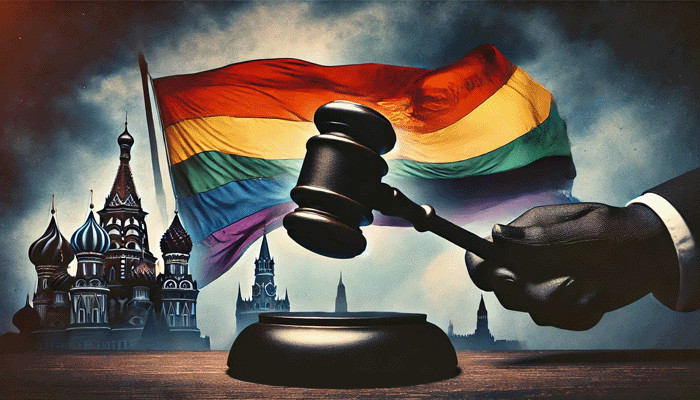ILGA-Europe Annual Review 2024
New ILGA-Europe report shows a stark rise in anti-LGBTI, and in particular, transphobic statements from politicians across Europe
01/Mar/24
2988
ILGA-Europe Annual Review 2024
New ILGA-Europe report shows a stark rise in anti-LGBTI, and in particular, transphobic statements from politicians across Europe.
The 13th Annual Review of the Human Rights Situation of LGBTI People in Europe and Central Asia alarmingly reports hate speech from politicians in 32 European countries over the course of last year, 19 of them member states of the EU.
“The very core values and standards upon which the EU was founded - respect for human dignity and human rights, freedom, democracy, equality and the rule of law - are being called into question, and human rights, and in particular the human rights of LGBTI people, are facing a strong challenge from far-right forces. LGBTI people’s rights and humanity are increasingly being exploited to divide societies, undermine democracy, the rule of law and human rights,” says Katrin Hugendubel, Advocacy Director with ILGA-Europe.
Annual Review 2024 - Azerbaijan
ACCESS TO GOODS AND SERVICES
On May 14, LGBTQ+ activist Ali Malikov reported on his social media that he was subjected to homophobic treatment in the “Friends” cafe located in Baku, having been told to remove a rainbow flag from his table. He filed a complaint with the police.
BIAS-MOTIVATED SPEECH
QueeRadar’s 2022 hate speech monitoring report found that of the 428 media pieces analysed, 77% were hateful or biassed against LGBTIQ+ people (2021: two-thirds).
In May, several politicians called for investigation and the removal of a rainbow flag, which the British Embassy raised on IDAHOBIT. Media reporting was also biassed and hostile.
Voice of America released a brief video about LGBTIQ+ rights in Azerbaijan, which was followed by hostile articles, including video reportage by pro-government network REAL TV.
Brothers Tural and Turan, who represented Azerbaijan at the 2023 Eurovision Song Contest, were targeted by homophobic comments online.
In May, politician Tofiq Yaqublu said queer people were “sick” and “disabled”.
In August, actor and president of the Azerbaijan Cinematographers Union, Rasim Balayev said equal marriage goes “against our religion and our reason” during an interview on a popular YouTube channel.
BIAS-MOTIVATED VIOLENCE
(See also under Education)
Hate crimes against the LGBTQI+ community continued to be
a serious issue. A trans woman was tortured and murdered in July in Baku. Several other trans people were also physically assaulted this year, including by the police (see here). Several gay men were attacked.
Two trans women were detained for ‘hooliganism’ by the police on 22 May, for making noise. To show solidarity and demand their release, seven LGBTI activists gathered outside the Baku police station on 23 May. All seven were arrested, charged with ‘minor hooliganism’ and other offences, and fined. Some of them shared that they were beaten, harassed, insulted, locked up in a very small cell and kept without food or water while in custody. The authorities and civil society did not condemn the mistreatment.
On 31 May, Christophe Lacroix, the Parliamentary Assembly of the Council of Europe (PACE) rapporteur on the rights of LGBT people, issued a statement condemning the police’s actions. On 7 June, MEPs of the European Parliament denounced the arrests and called for investigation, asking the European Commission to do the same. The EU High Representative of the Union for Foreign Affairs and Security Policy, Josep Borrell Fontelles expressed concern about the events in July.
In July, the police raided a private birthday party attended by several queer people and subjected them to forced medical examinations, physically and sexually harassed them, and threatened to out them publicly.
BODILY INTEGRITY
ECRI recommended that Azerbaijan ban non-consensual medical interventions performed on intersex children. Civil society documented at least one case this year.
In July, video information about forced genital surgery of a 13-year-old intersex child was shared on social networks.
EDUCATION
ECRI recommended that Azerbaijan tackle anti-LGBTI bullying in schools.
A 17-year-old student was repeatedly harassed and verbally insulted and threatened by a peer and a teacher in Baku. In the lack of any law that would protect people from discrimination, bullying and violence based on sexual orientation, gender identity, gender expression and sex characteristics (SOGIESC), the police did not take action. The teenager faced verbal harassment at the police station as well. Thanks to the Ombudsperson’s intervention, the peer apologised and the teacher was reprimanded. The student may file for a civil case.
In September, after taking time off from their studies due to the persistent harassment, the same student was beaten by another pupil on their second day back to school.
The new Gender Equality university textbook, co-released by the State Committee for Family, Women and Children’s Problems includes no mention of SOGIESC.
EQUALITY AND NON-DISCRIMINATION
In March, the European Parliament adopted its report on EU-Azerbaijan relations, recommending that the government adopt firm legislation to protect LGBTI people from discrimination and violence, wrongful arrest, and police abuse.
On IDAHOBIT on 17 May, the UK Embassy raised the rainbow flag in the capital, receiving harsh public criticism.
ECRI published its sixth periodic report on Azerbaijan in June, concluding that the government had not taken any steps to protect LGBTI people from discrimination and violence and ensure their equality.
FOREIGN POLICY
Government-affiliated media published a number of articles undermining international agencies and their support of LGBTI people’s rights. State-controlled national television channel AzTV accused the USA of “bringing the LGBT system into politics” in one of their programmes.
FREEDOM OF ASSEMBLY
(See also under Bias-motivated Violence)
On 8 March, feminist and queer activists held the ‘8 March - We Want to Live!’ rally, again demanding that the government ensure equal rights for all without discrimination on grounds of SOGI, investigate femicides, bring perpetrators to justice, take effective measures to prevent violence and femicides, and ratify the Istanbul Convention. The police pushed and shoved several participants. The Baku Municipality said the march had no purpose.
FREEDOM OF EXPRESSION
In June, the Minister of Education was criticised after sharing a picture on social media on Children’s Day, which featured a rainbow-coloured kite.
Following the adoption of Russia’s latest anti-LGBT propaganda law, several politicians, including from the government, said Azerbaijan should adopt a similar law.
In February, a year after the homophobic murder of LGBTQ+ activist Avaz Hafizli a documentary about his life was screened in Baku.
In March, the Turkish singer Kalben hung a trans flag during her concert in Baku.
HEALTH
ECRI highlighted that trans people have very poor access to hormonal therapy and often have to resort to buying and using them in an unsafe manner, without medical supervision.
HOUSING
Civil society reported that trans people faced evictions again this year.
HUMAN RIGHTS DEFENDERS
(See under Bias-motivated Violence)
LEGAL GENDER RECOGNITION
ECRI recommended that Azerbaijan provide for a legal gender recognition procedure on the basis of self-determination.
PARTICIPATION IN PUBLIC, CULTURAL AND
POLITICAL LIFE
Several people who wanted to participate in Eurogames 2023 in Switzerland were denied a visa by the Swiss Embassy in Baku. In November, the UN Human Rights Council reviewed Azerbaijan’s human rights records during its Universal Periodic Review (UPR), to which Gender Resource Center and Q Collective jointly submitted a report assessing the impact of existing legal frameworks. Nafas together with ECON presented a report too, focused on bias-motivated speech and crime, among other areas of concern.
POLICE AND LAW ENFORCEMENT
(See also under Bias-motivated Violence; and Freedom of Assembly)
In February, a trans woman was arrested. Methamphetamine was discovered in her possessions. She claimed that police officers had inflated the quantity of drugs. On November 15, a court convicted her, sentencing her to eight months in a men’s prison. Her lawyer declared she will appeal the case.
Powered by Froala Editor



